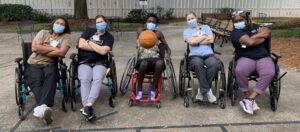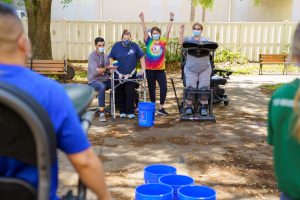An Occupation in Occupational Therapy: Body, Mind and Spirit
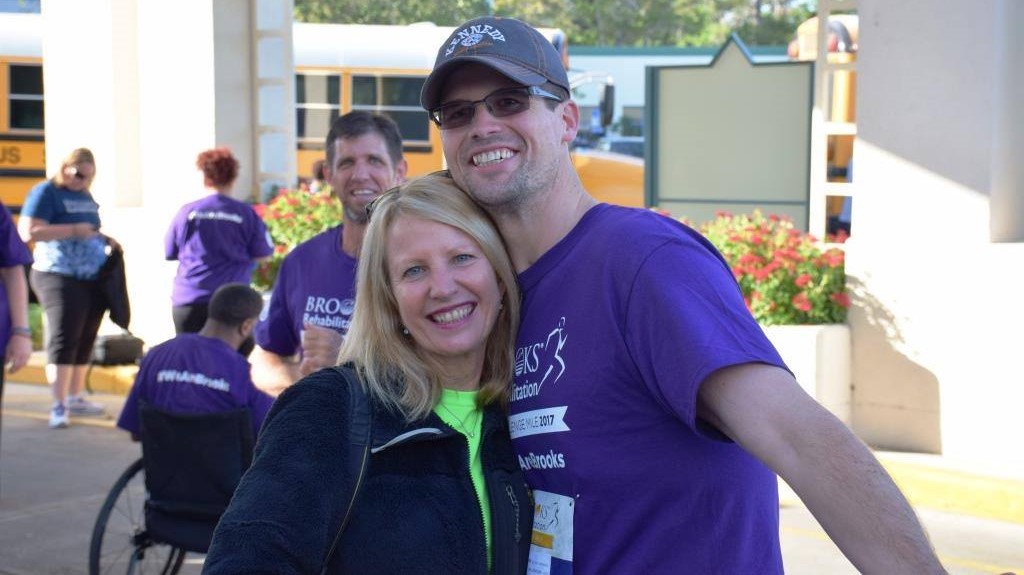
Back to physical health resource hub
Like most children, Alice Krauss had no idea what she wanted to do when she grew up. Even after entering college, she wasn’t exactly sure. She knew she had a helping heart and a curious mind but was not sure what to do with these innate tendencies as far as choosing a career or educational path.
“I knew I wanted to make a difference, to help people and to make the world a better place. I was very interested in what underlies our motivation and behavior when faced with a challenge,” said Krauss. She saw a link between trauma and health – how a traumatic life experience could start someone on a downward spiral. “I recognized that to help individuals facing a challenge, I would need to understand the inextricable link of the mind, body and spirit and that health in one area automatically impacts health in the other two areas,” she said.
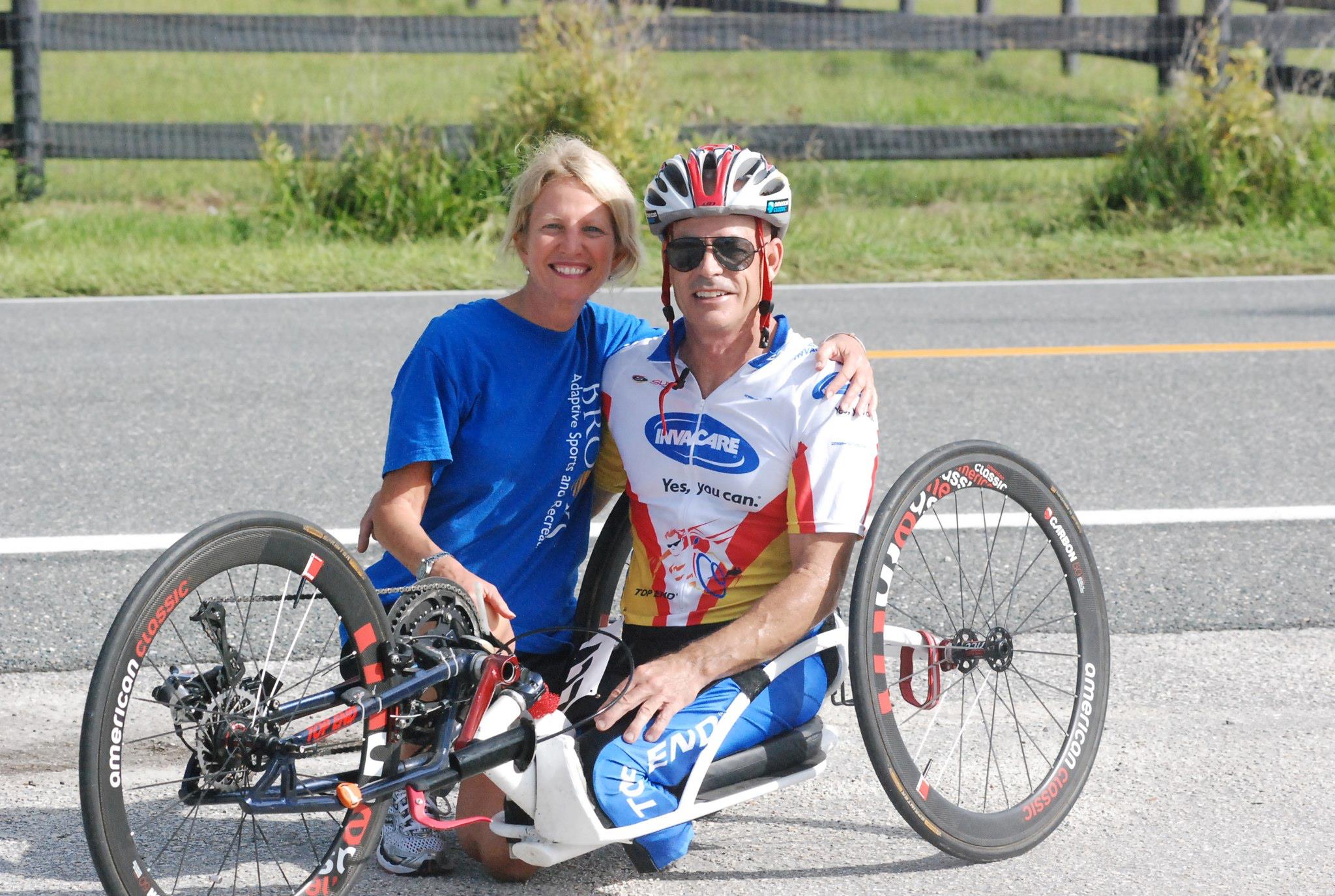 Krauss saw occupational therapy listed in the course catalog. “I didn’t even know what an occupational therapist was until I was a sophomore in college,” she said. The description in the catalog said that occupational therapy involved the mind, body and spirit connection. “That is the basic tenet of occupational therapy – this inextricable link. If you enable someone with a health challenge – someone who is not thriving in their lives due to a physical, psychosocial or environmental issue – to participate in personally meaningful activity, their health improves …mind, body and spirit. This concept immediately resonated with me and validated my thoughts growing up seeing stories of Vietnam Veterans ending up on the wrong end of the law and criminals who had sad childhoods.”
Krauss saw occupational therapy listed in the course catalog. “I didn’t even know what an occupational therapist was until I was a sophomore in college,” she said. The description in the catalog said that occupational therapy involved the mind, body and spirit connection. “That is the basic tenet of occupational therapy – this inextricable link. If you enable someone with a health challenge – someone who is not thriving in their lives due to a physical, psychosocial or environmental issue – to participate in personally meaningful activity, their health improves …mind, body and spirit. This concept immediately resonated with me and validated my thoughts growing up seeing stories of Vietnam Veterans ending up on the wrong end of the law and criminals who had sad childhoods.”
According to the American Occupational Therapy Association, Occupational Therapy helps people across the lifespan to do the things, they want and need to do through the therapeutic use of daily activities (occupations). The practitioners have a holistic perspective of the person and their environment, in which the focus is on adapting the environment and the occupational task to fit the unique needs of the individual.
“Personally meaningful occupation, based on an individual’s values, goals, interests and needs, is our therapeutic modality. Whatever occupation we are working on should be linked to something that is personally meaningful to that individual. Our therapeutic goals that we co-create with our patients are also framed in occupation; so, occupation as means (treatment) to an end (goal),” Krauss explained.
To Krauss, it was a chance to combine her personal beliefs about humanity with a career that focuses on enabling people to lead happy, healthy and productive lives. Krauss pursued occupational therapy and believes it was the absolute best choice she made in her life.
On a college field trip, during the summer of 1982, Krauss found herself in Jacksonville at Cathedral Rehabilitation, the original name for what eventually became Brooks Rehabilitation. There she saw the employees helping patients help themselves. “I saw young, injured people living their lives, walking with the help of canes, walkers and braces. And I remember thinking, “They are really transforming lives here,” said Krauss. The care at Cathedral Rehabilitation so impressed Krauss that she took an internship there, and later began her career.
Now, 37 years later, a few things have changed, but the essence and motivation of her daily professional life remains the same. Krauss is still advocating to improve the health and quality of life of those living with disability.
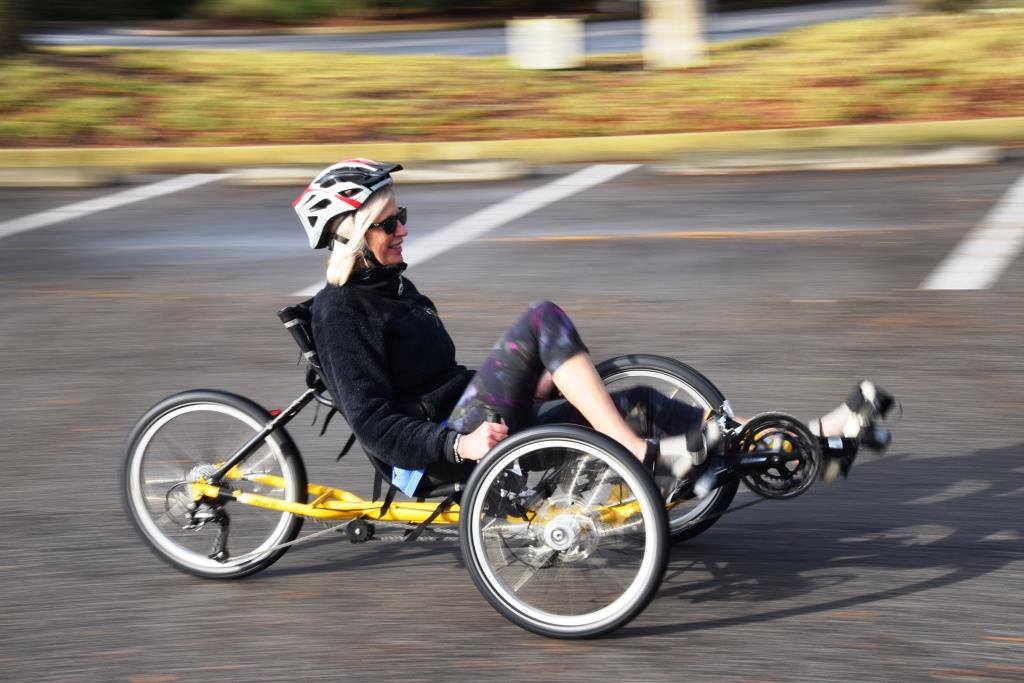 During her 25 years in management, Krauss proposed Brooks Adaptive Sports and Recreation, one of Brooks’ many impactful community health programs. The impetus for the program was her observation of disabled individuals in our community living socially isolated and physical inactive lives, leading to secondary health complications and ultimately, to a poor quality of life. As an occupational therapist, Krauss believed that if we could provide access for these individuals to participate in personally meaningful occupations that supported lifelong health, mind, body and spirit, Brooks could have an impact not only on the individual but the health and quality of life of our entire community. Sport and recreation were chosen because of their universal appeal as well as the ease of adaptability to individual needs, interests and abilities.
During her 25 years in management, Krauss proposed Brooks Adaptive Sports and Recreation, one of Brooks’ many impactful community health programs. The impetus for the program was her observation of disabled individuals in our community living socially isolated and physical inactive lives, leading to secondary health complications and ultimately, to a poor quality of life. As an occupational therapist, Krauss believed that if we could provide access for these individuals to participate in personally meaningful occupations that supported lifelong health, mind, body and spirit, Brooks could have an impact not only on the individual but the health and quality of life of our entire community. Sport and recreation were chosen because of their universal appeal as well as the ease of adaptability to individual needs, interests and abilities.
“This is the most authentic example of Occupational Therapy I’ve been involved in. It enables people to actively be involved in their own life,” said Krauss.
Brooks Adaptive Sports and Recreation launched in 2007. It provides opportunities for fun, fitness and friendship to individuals of all ages and abilities living with disability. The activities enable the essential social connection and physical activity that promote health, well-being and quality of life. The program is open to anyone in the community with a physical, visual or cognitive disability. The Program is completely free and individuals may participate recreationally or competitively. No experience or aptitude is needed.
“Although our Program looks like a traditional adaptive sports program, it is actually designed as an innovative preventative healthcare strategy,” said Krauss.
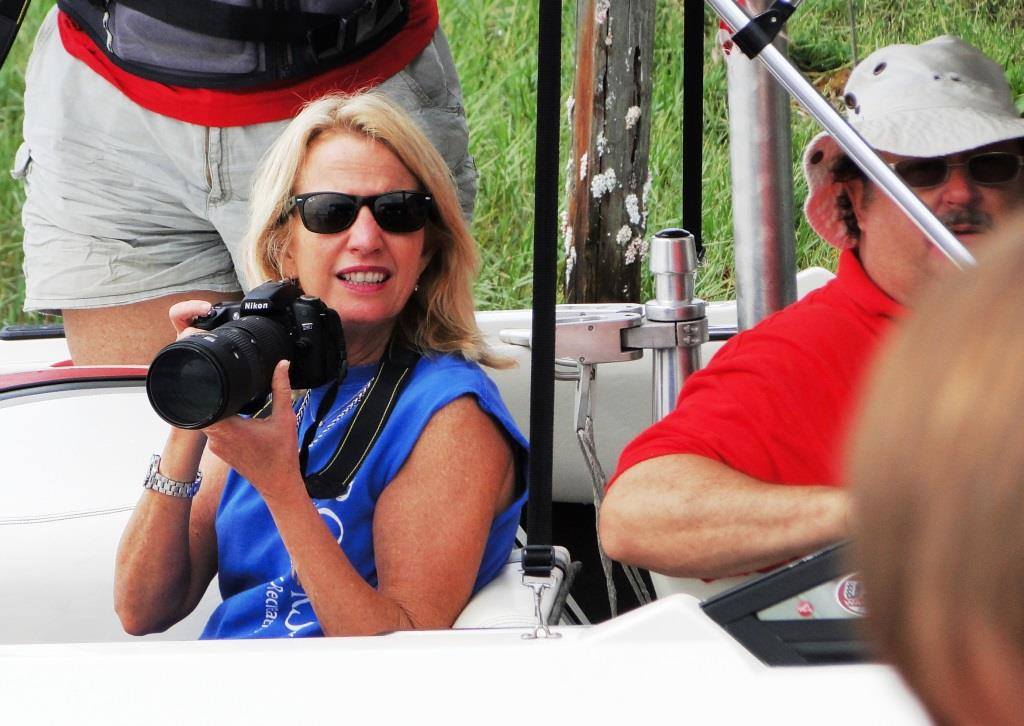 Krauss is extremely and forever grateful to Brooks executive leadership for believing in her vision and assuming the responsibility of addressing this healthcare need in our community. “My friends say there is no difference between who and I am and what I do. It’s easy for me to come to work on Monday mornings because this profession has brought me so much joy. Brooks has provided the perfect platform for a very rewarding occupational therapy career filled with personal and professional development opportunities and lifelong friendships,” she said.
Krauss is extremely and forever grateful to Brooks executive leadership for believing in her vision and assuming the responsibility of addressing this healthcare need in our community. “My friends say there is no difference between who and I am and what I do. It’s easy for me to come to work on Monday mornings because this profession has brought me so much joy. Brooks has provided the perfect platform for a very rewarding occupational therapy career filled with personal and professional development opportunities and lifelong friendships,” she said.

